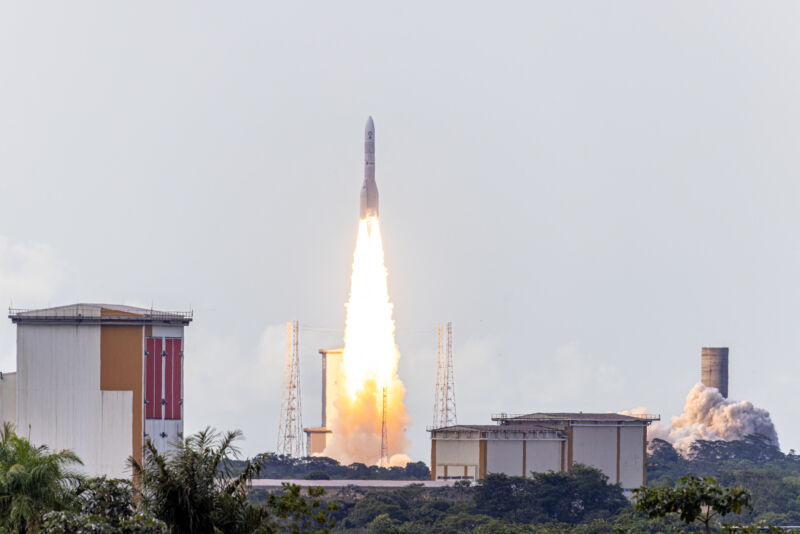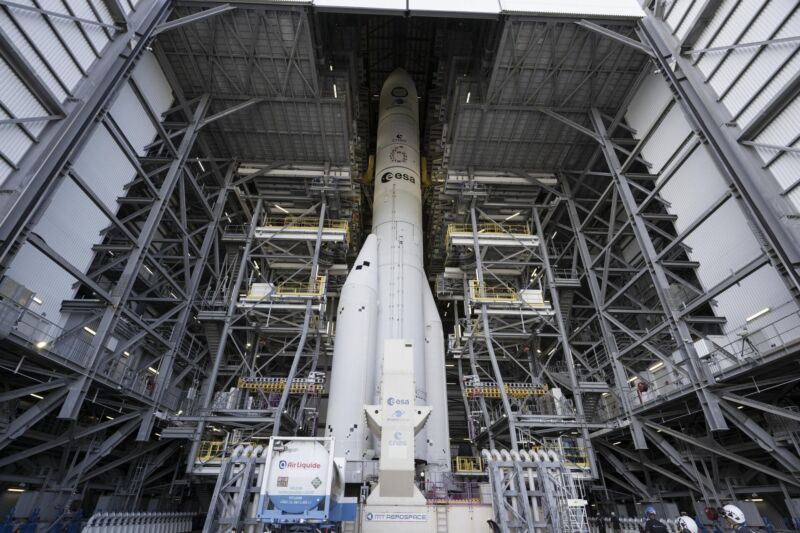Europe’s first Ariane 6 flight achieved most of its goals, but ended prematurely

Enlarge / Europe's first Ariane 6 rocket lifts off from a new launch pad in Kourou, French Guiana. (credit: Jody Amiet/AFP via Getty Images)
The first European Ariane 6 rocket fired off its launch pad at the edge of the Amazon rainforest and climbed into orbit Tuesday, an inaugural flight a decade in the making that restored Europe's ability to put its own large satellites into space.
The debut of the Ariane 6 rocket came almost exactly one year after Europe's previous workhorse rocket, the Ariane 5, flew for the final time. Running four years late, the Ariane 6 is set to become Europe's next flagship launcher. But delays in its development, combined with other factors, forced European governments to pay SpaceX to deliver several payloads to orbit.
With Tuesday's test flight, European space officials hope those days are behind them. The European Space Agency paid more than $4 billion to get the Ariane 6 rocket to this point, with the goal of replacing the Ariane 5 with a cheaper, more capable launcher. There are still pressing questions about Ariane 6's cost per launch, and whether the rocket will ever be able to meet its price target and compete with SpaceX and other companies in the commercial market.
